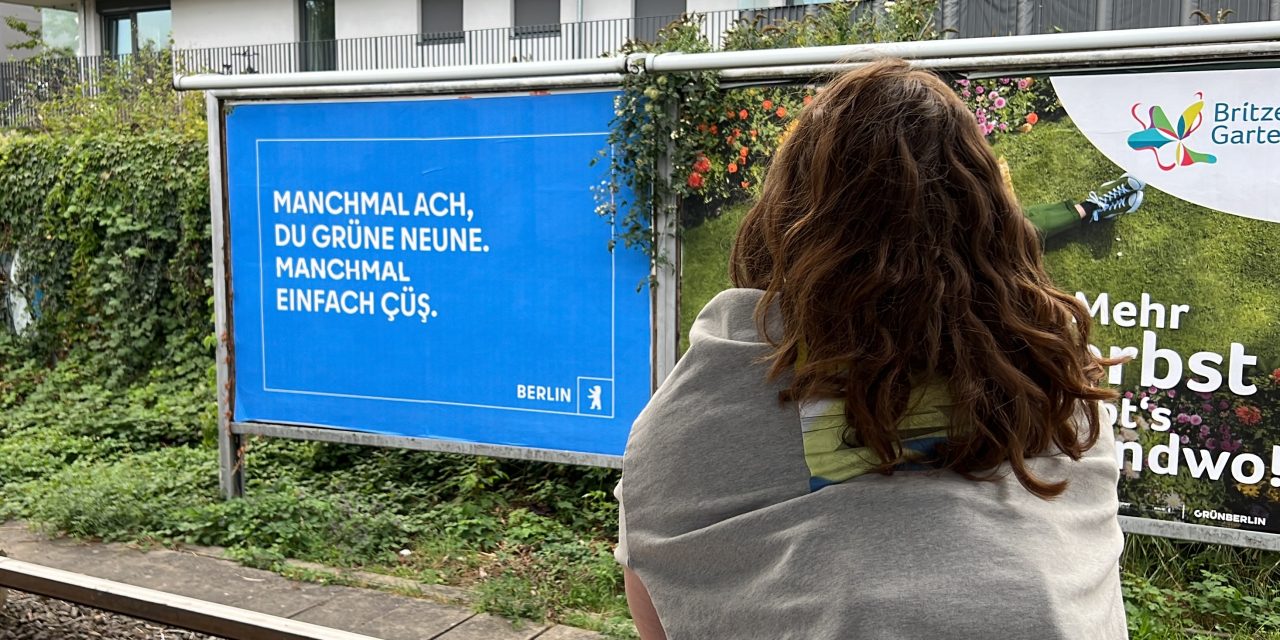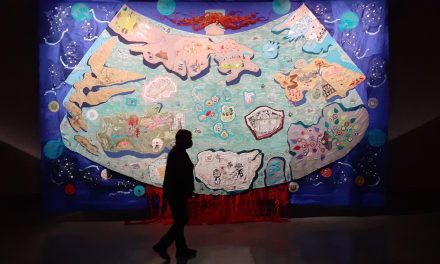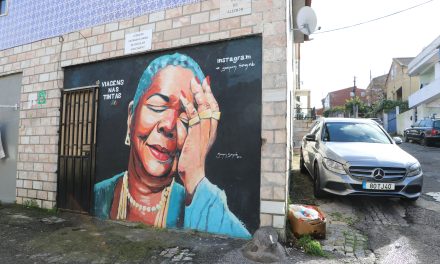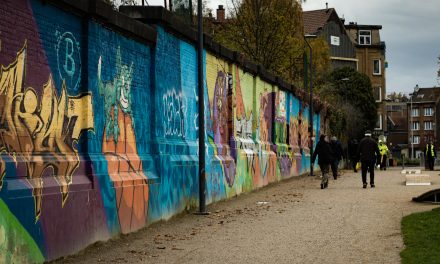When walking through Cologne in West-Germany, you might catch sight of a billboard poster with the following text: “We have everything, but no bucks.” In the corner of the poster is a peculiar sight: a bear representing the coat of arms of Berlin. What is this animal doing so far away from its hometown?
Polishing Berlin
The posters found in Cologne are part of a larger national campaign funded by the Senate of Berlin. The campaign consists of roughly 1,500 posters, with the majority displayed in Berlin itself. It aims to showcase the Berlin identity in a rather unconventional way, using ironic quotes to joke about the capital city. “Our image campaign aims to counter clichés and preconceptions about Berlin while strengthening solidarity within our city”, says Senate of Berlin spokesperson Christine Richter.
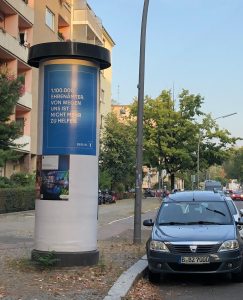
New poster in Berlin Foto: Clara Himmel
These ironic quotes can be found on billboards hundreds of kilometers away from the capital city. In the south, you might see “Real Swabians are moving” in Stuttgart, or “Here, the Bavarians are taking off their lederhosen” in Munich. Further west, a reference to the symbol of the soccer club FC Köln can be found on posters in Cologne: “We have everything, but no bucks.” All of this is an effort to polish the image of Berlin, which is often subject to criticism in other parts of the country.
Capital Divide
“Internationally, Berlin has magnetic appeal,” says spokesperson Richter, “In Germany, awareness of the many challenges our growing city faces lead to more critical views of Berlin”. This poor image of Berlin outside of the capital city is part of a broader trend in Europe, where the divide between capitals and other regions is growing. According to an article from the Centre for European Reform, this is mostly due to economic and cultural differences. The economic aspect relates to the greater economical growth in urban areas, particularly in capital cities.
In the case of the relationship between Berlin and the rest of Germany, the cultural aspects of the divide are explored in a video by Germany’s international broadcaster Deutsche Welle. Among ‘the nine reasons why Berlin isn’t very German at all’ are the perception that Berlin tends to be seen as disorganised compared to other parts in Germany. According to the video, the city is also negatively perceived due to the large amounts of tourism. Positive differences are also presented, such as the relatively cheap rent and the city’s strong appeal to creatives and entrepreneurs.
Poor but Sexy
In a mockumentary that is part of the same campaign, two young Berliners visit the smaller town of Berlinchen to see if they can change the image of Berlin. They find out that this task is not as easy as it seems. “The idea of the campaign is not necessarily to fix these problems,” says the spokesperson for the Senate of Berlin, “we just want to see if we can get other parts of Germany to be less critical of Berlin.”
The Deutsche Welle video refers to Berlin as “poor but sexy,” which perfectly exemplifies the duality of this divide. The campaign uses this duality to its advantage, making it the focal point of its ironic message. This is best showcased in the mockumentary in Berlinchen. “The two protagonists can’t free themselves from Berlin’s pull. They try to recreate typical Berlin places in the countryside,” says spokesperson Richter, “but in the end Berlin is only Berlin in Berlin”.
